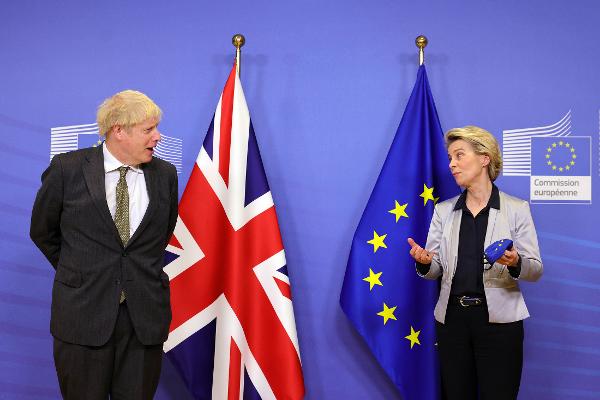Chapter 3 of EU-UK Trade and Cooperation Agreement is by far the longest and most comprehensive set of provisions on subsidies control ever included in a free trade agreement. Considering that the UK Government decided to exclude state aid law from those areas of EU law to be retained after Brexit and that the UK negotiation position was to commit only to a mere reciprocal notification of possible subsidies every two years, the inclusion of such a detailed set of provisions is rather spectacular. The TCA requires both parties to commit to a series of mutual obligations as to ensure to avoid granting of subsidies where they have or could have a material effect on trade or investment between the Parties’ (Article LPF 3.4) It also provides for a long list of requirements that need to be complied with in order to ensure that a subsidy won’t be ‘caught’ by the TCA, a list mostly nearly copied and pasted from the general principles of compatibility of aid as developed over sixty years by the European Commission in relation to the interpretation of Article 107(3). Of course not all subsidies will fall foul of the TCA rules but only those that have a “material” effect on trade or investment (Article LPF 3.5(2)). Further, the actual or potential effect on trade necessarily requires a higher evidential threshold as parties need to show that the subsidy has or could have a negative effect (Article LPF 3.8) and would need to prove the existence of such significant negative effect by relying on ‘facts and not merely on allegation, conjecture or remote possibility’ (Article LPF 3.12 5 and 6). Chapter 3 also confers to the parties a vast variety of enforcement tools: a domestic system of subsidies control (Article LPF 3.9.1), private enforcement before national courts (Article LPF 3.10) and State to State remedy in the form of ‘remedial measures’ in case of a serious risk of negative effect on trade, subject to a possible arbitration procedure (Article LPF 3.12). Finally, parties can seek to activate a re-balancing clause’ in case of ‘significant divergences’ between the Parties. It will of course remain to be seen how the agreement will operate between the parties. Still the UK is now faced with a rather bizarre situation. On the one side the UK does not have right now any “domestic” provisions on state aid law. On the other, the UK parliament, in ratifying the TCA decided to substantially give immediate effect to the TCA provisions (See section 29(1) of the EURA). This means that the Chapter on subsidies to the extent that the UK is obliged to implement it, is applicable in domestic law. Hence the necessity to come up (and quickly!) with a new regime to regulate the granting of subsidies. The Government has therefore launched a consultation as ”to develop a flexible system that empowers public authorities to design and award subsidies which strike the right balance between allowing the benefits from subsidies while limiting the most harmful impacts”. This could mean a bit of everything. In reality, there are few specific issues that would need to be addressed:
a) in terms of substance the four key elements used to define a subsidy in the TCA (i.e., financial contribution, benefit, specificity, negative impact on trade or investment) largely correspond to the standard EU and international trade benchmark. Thus, their application should not be overly complicated, although the consultation document would seem to define a “subsidy” by reference to the question of whether the body which makes a “financial contribution” is a “public authority”. This is by far a too restrictive reading, as the correct test should be instead concerned not with the question of the standing of the body, which grants the subsidy, but with the question of whether the grant involves the use of public money.
b) in terms of the extent of control, the consultation paper proposes to incorporate in the definition of a “subsidy” considerations that relate to its potentially distortive effects on the UK’s own internal market. This seems a good choice as to avoid harmful effects of such measure on domestic competition and to deflect potential conflicts between the different devolved authorities, Scotland, Wales and North Ireland. Indeed, it would seem absurd that a domestic subsidy control regime is concerned with effects on trade internationally but not to have any regard as to how it might affect fair competition domestically.
c) in terms of monitoring, leaving the EU regime means that UK subsidies will no longer be subject to the pre-notification procedure ex Art 108 TFEU. The UK is thus at liberty to choose different methods for instance an ex-post evaluation or just judicial review. It seems however sensible on the one side to somehow transplant the GBER model of safe harbours (areas not subject to any notification) to confer to option but not obligation for granting authorities to notify a subsidy which falls outside the safe harbours, and finally an obligation to notify to the independent regulator for approval before implementation certain defined categories of subsidies which are deemed to be at particular risk of giving rise to: a significant distortive effect on domestic competition, or significant negative effect on trade (or investment) with the EU.
d) mention of an independent regulator leads to the most controversial issue: the TCA requires the parties to set up a domestic regime of subsidies control, with the only caveat that such a system needs to be effective. For the EU, it is the Commission. For the UK, there are of course many and different options but arguably the distinctive feature of such a body has to be the independence from the Government. The better candidate should be the antitrust regulator, the Competition and Market Authority, a highly regarded body internationally, particularly for its independence and impartiality. It is subject to statutory duties guaranteeing its independence and ensuring that decisions are taken with a view to ensuring a prescribed list of statutory policy objectives and principles.
These are just some of the important questions that the UK Government would need to address in the coming weeks. The effectiveness and soundness of the solutions adopted will not only, in my view, affect how the future relationships on subsidies control between the EU and the UK are going to develop but they will say a lot of the kind of constitutional model the UK may end up embracing. Time will tell.



























